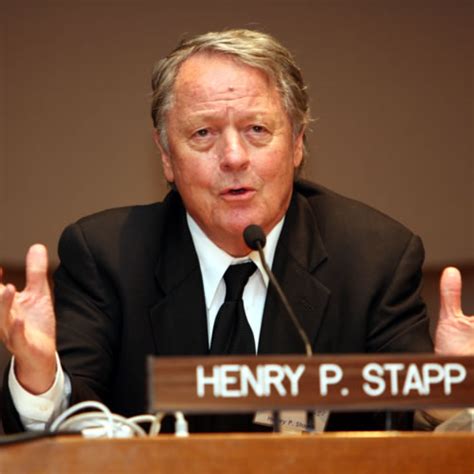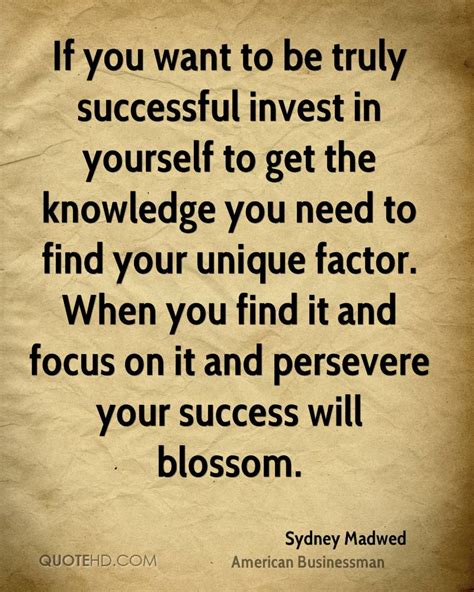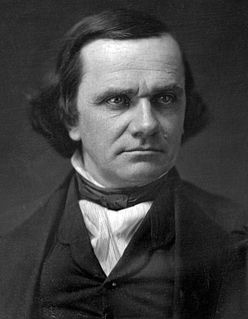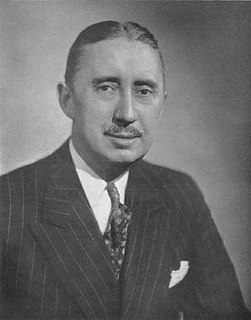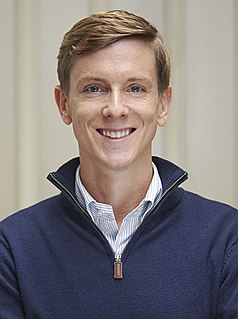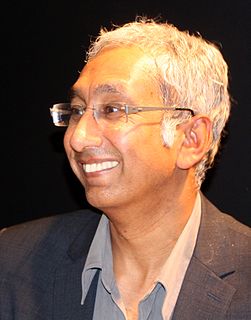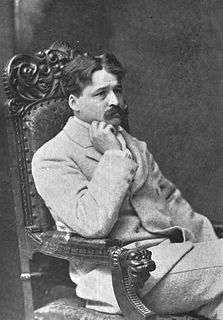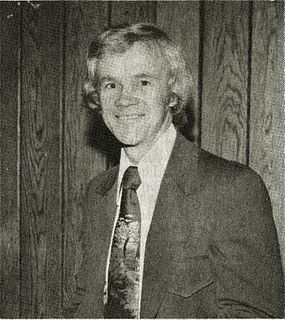Top 1200 Religious Values Quotes & Sayings - Page 20
Explore popular Religious Values quotes.
Last updated on April 15, 2025.
Our beliefs about ourselves in relation to the world around us are the roots of our values, and our values determine not only our immediate actions, but also, over the course of time, the form of our society. Our beliefs are increasingly determined by science. Hence it is at least conceivable that what science has been telling us for three hundred years about man and his place in nature could be playing by now an important role in our lives.
In some of the classes, especially the introductory religion courses I took, the professors can veer into a particular strain of religious anti-intellectualism. Professors typically aren't given tenure at Liberty, so there's pressure to hew to the party line on religious and social issues. I didn't see a whole lot of my professors encouraging critical thinking among their students. Which isn't to say that students don't engage critical thinking skills at Liberty - just that it wasn't part of my classroom experience there.
Market bashers ... might understand the claim that in some particular field, markets required no intervention--though they'd be skeptical--but the notion that, on general principle, complex systems ran themselves just fine without benign intervention seemed like it could only be the product of a quasi-religious faith. ... Of course, this gets things almost precisely backwards. It is the idea that all order must be explained by a functioning mind at the helm, not its denial, that has the closet affinity to the religious instinct.
The problem of values arises only when men try to fit together their need to be social animals with their need to be free men. There is no problem, and there are no values, until men want to do both. If an anarchist wants only freedom, whatever the cost, he will prefer the jungle of man at war with man. And if a tyrant wants only social order, he will create the totalitarian state.
... with every Asiatic country where we operate in cooperation with the existing culture, the need for intelligent understanding of that country and its ways of life will be crucial. These nations will very likely not respond to appeals with which we are familiar, and not value rewards which seem to us irresistible. The danger--and it would be fatal to world peace--is that in our ignorance of their cultural values we shall meet in head-on collision and incontinently fall back on the old pattern of imposing our own values by force.
In its main features the Declaration of Independence is a great spiritual document. It is a declaration not of material but of spiritual conceptions. Equality, liberty, popular sovereignty, the rights of man - these are not elements which we can see and touch. They are ideals. They have their source and their roots in the religious convictions. They belong to the unseen world. Unless the faith of the American people in these religious convictions is to endure, the principles of our Declaration will perish. We can not continue to enjoy the result if we neglect and abandon the cause.
In order to teach a course in the history of Western religious thought, I had to do a great deal of research in the writings within the Judaic and Christian traditions and I was astonished to find in those writings philosophical thought of great power and sophistication. These writings completely blew away all my opinions about what I had taken to be the irrationality or immaturity of religious ideas, opinions which were and still are fashionable in many intellectual and literary circles today.
If you look at the India-US relationship for example, the role that the Indian diaspora has played in the relationship is extremely crucial. Yes, we share democratic values but there is also the great role that the Indian diaspora has played in strengthening the bond of friendship between India and the US, and of course in underscoring the democratic values between the two countries.
Is the appointment of Chaplains to the two Houses of Congress consistent with the Constitution, and with the pure principle of religious freedom? In strictness the answer on both points must be in the negative. The Constitution of the U. S. forbids everything like an establishment of a national religion. The law appointing Chaplains establishes a religious worship for the national representatives, to be performed by Ministers of religion, elected by a majority of them, and these are to be paid out of the national taxes. Does this not involve the principle of a national establishment ... ?
There are two kinds of comprehensive doctrines, religious and secular. Those of religious faith will say I give a veiled argument for secularism, and the latter will say I give a veiled argument for religion. I deny both. Each side presumes the basic ideas of constitutional democracy, so my suggestion is that we can make our political arguments in terms of public reason. Then we stand on common ground. That's how we can understand each other and cooperate.
If you are really spontaneous, people will think you are mad. If you go to a tree and start talking, or to a flower, people will think you are mad. If you go to a church and talk to a cross or to an image, nobody will think your are mad, they will think that you are religious. You are talking to a stone in a temple and everybody thinks you are religious because this is the authorized form.
According to my religious belief, I'm sorry if you feel like I'm pushing this on you - my religious belief is that you behave the way God wants us to behave. And that's simply love God and love one another. If we did that, there would be no need for any of the other commandments. It would be great. But in the same vein, we would have obtained paradise by that point. And it's tougher to get to paradise by that point.
Preserve the core, and let the rest flux. In their wonderful bestseller Built to Last, authors James Collins and Jerry Porras make a convincing argument that long-lived companies are able to thrive 50 years or more by retaining a very small heart of unchanging values, and then stimulating progress in everything else. At times "everything" includes changing the business the company operates in, migrating, say, from mining to insurance. Outside the core of values, nothing should be exempt from flux. Nothing.
Among the features peculiar to the political system of the United States is the perfect equality of rights which it secures to every religious sect. [...] Equal laws protecting equal rights, are found as they ought to be presumed, the best guarantee of loyalty, and love of country; as well as best calculated to cherish that mutual respect and good will among citizens of every religious denomination which are necessary to social harmony and most favorable to the advancement of truth.
The courts demand that every religious person must accommodate a single atheist who might be 'offended' at the favorable mention of God's name. But no atheist can be forced to accommodate a single religious person who might be offended by the atheist's unbelief, or who wants to be part of the pluralism and diversity about which liberals regularly speak, but which is not broad enough to embrace people who believe in God.
One of the things that sets the Bible apart from all other ancient religious writings is its scientific accuracy. Without exception, every other ancient religious writing contains certain scientific errors. For example, Muhammad taught in the Qur'an that the sun descends down into a muddy spring. The Hindu Vedas state that the Earth is flat and triangular, that earthquakes are caused by elephants shaking themselves under it. You'll never read absurd statements like those in the Bible.
The issues which today confront the nation are clearly defined and so fundamental as to directly involve the very survival of the Republic. Are we going to preserve the religious base to our origin, our growth and our progress, or yield to the devious assaults of atheistic or other anti-religious forces? Are we going to maintain our present course toward State Socialism with Communism just beyond or reverse the present trend and regain our hold upon our heritage of liberty and freedom?
A comprehensive doctrine, either religious or secular, aspires to cover all of life. I mean, if it's a religious doctrine, it talks about our relation to God and the universe; it has an ordering of all the virtues, not only political virtues but moral virtues as well, including the virtues of private life, and the rest. Now we may feel philosophically that it doesn't really cover everything, but it aims to cover everything, and a secular doctrine does also.
People change, mature, and develop their values, attitudes, and preferences as a function of age. It is actually a strategy deployed by many organizations. The idea is that once Millennials grow up -get a mortgage, family- they will start acting like us and sharing our values. Personally, I would not make that bet. Even if it were to happen, Millennials are putting off seven or more years what other generations have done. Waiting for Millennials to "grow up" is risky when it comes to knowledge transfer, talent development, and competitive advantage.
Way down deep the American people are afraid of an entangling relationship between formal religions - or whole bodies of religious belief - and government. Apart from constitutional law and religious doctrine, there is a sense that tells us it's wrong to presume to speak for God or to claim God's sanction of our particular legislation and his rejection of all other positions. Most of us are offended when we see religion being trivialized by its appearance in political throw-away pamphlets.
If enough people are sensitive to the tragedy of Tibet, I think it will produce a change politically as well. But furthermore, it's important for the people in Tibet. Now communication is such [that] people know what is happening. Even Tibetan people would know that the Interfaith or the international group of religious people - that everybody who is religious is taking up their cause. It would help them a lot if we give them courage, and that in itself is enough.
This means that if a person fulfills his or her vocation as a steelmaker, attorney, or homemaker coram Deo, then that person is acting every bit as religiously as a soul-winning evangelist who fulfills his vocation. It means that David was as religious when he obeyed God’s call to be a shepherd as he was when he was anointed with the special grace of kingship. It means that Jesus was every bit as religious when He worked in His father’s carpenter shop as He was in the Garden of Gethsemane.
Spirituality is much wider than any particular religion, and in the larger ideas of it that are now coming on us even the greatest religion becomes no more than a broad sect or branch of the one universal religion, by which we shall understand in the future man's seeking for the eternal, the divine, the greater self, the source of unity and his attempt to arrive at some equation, some increasing approximation of the values of human life with the eternal and the divine values.
I am now speaking of rights under the Constitution, and not of moral or religious rights. I do not discuss the morals of the people of Missouri, but let them settle that matter for themselves. I hold that the people of the slaveholding States are civilized men as well as ourselves, that they bear consciences as well as we, and that they are accountable to God and their posterity and not to us. It is for them to decide therefore the moral and religious right of the slavery question for themselves within their own limits.
Habit must play a larger place in our religious life. We worship when we feel like it, we pray when we feel like it. We read the Bible when we feel like it. Leaving our religious exercises to the promptings of impulse, we become creatures of impulse rather than soldiers of Christ. An army made up of creatures of impulse would be only a mob. So is a church.
All these people talk so eloquently about getting back to good old-fashioned values. Well, as an old poop I can remember back to when we had those old-fashioned values, and I say let's get back to the good old-fashioned First Amendment of the good old-fashioned Constitution of the United States - and to hell with the censors! Give me knowledge or give me death!
Our knowledge of the historical worth of certain religious doctrines increases our respect for them, but does not invalidate our proposal that they should cease to be put forward as the reasons for the precepts of civilization. On the contrary! Those historical residues have helped us to view religious teachings, as it were, as neurotic relics, and we may now argue that the time has probably come, as it does in an analytic treatment, for replacing the effects of repression by the results of the rational operation of the intellect.
The issue of religious liberty is absolutely critical. America was founded on three different types of liberty: political liberty, economic liberty, and religious and civil liberty. It's remarkable that, one-by-one, these strands of liberty are coming under fierce attack from the Left. And that's particularly ironic because "liberal" derives from a word which means "liberty," the free man as opposed to the slave. This liberalism which we're saddled with today isn't a real liberalism at all, but a gangster style of politics masquerading as liberalism.
I am the greatest advocate of the Constitution....The only fault I find with the Constitution is, it is not broad enough to cover the whole ground. Although it provides that all men shall enjoy religious freedom, yet it does not provide the manner by which that freedom can be preserved, nor for the punishment of Government officers who refuse to protect the people in their religious rights, punish those mobs, states, or communities who interfere with the rights of the people on account of their religion. Its sentiments are good, but it provides no means of enforcing them.
We have gone a long way toward civilization and religious tolerance, and we have a good example in this country. Here the many Protestant denominations, the Catholic Church and the Greek Orthodox Church do not seek to destroy one another in physical violence just because they do not interpret every verse of the Bible in exactly the same way. Here we now have the freedom of all religions, and I hope that never again will we have a repetition of religious bigotry, as we have had in certain periods of our own history. There is no room for that kind of foolishness here.
If no one had ever challenged religious authority, there’d be no democracy, no public schools, women’s rights, improvements to science and medicine, evolution of slavery and no laws against child abuse or spousal abuse. I was afraid to challenge my religious beliefs because that was the basis of creation—mine anyway. I was afraid to question the Bible or anything in it, and when I did, that’s when I became involved with PFLAG and realized that my son was a perfectly normal human being and there was nothing for God to heal because Bobby was perfect just the way he was.
To have faith requires courage, the ability to take a risk, the readiness even to accept pain and disappointment. Whoever insists on safety and security as primary conditions of life cannot have faith; whoever shuts himself off in a system of defense, where distance and possession are his means of security, makes himself a prisoner. To be loved, and to love, need courage, the courage to judge certain values as of ultimate concern – and to take the jump and to stake everything on these values.
Moral questions may not have objective answers-whether revealed by God or by science-but they do have rational ones, answers rooted in a rationality that emerges out of social need. That rationality can only be discovered through exercising the human potential for rational dialogue, the potential for thinking about the world, and for discussing, debating and persuading others. Values can never be entirely wrenched apart from facts; but neither can they be collapsed into facts. It is the existence of humans as moral agents that allows us to act as the bridge between facts and values.
If I do something I think is new, it will be misunderstood, but if people like it, I will be disappointed because I haven't pushed them enough. The more people hate it, maybe the newer it is. Because the fundamental human problem is that people are afraid of change. The place I am always looking for-because in order to keep the business I need to make a little compromise between my values and customers' values-is the place where I make something that could almost-but not quite-be understood by everyone.
The lessons of religious toleration - a toleration which recognizes complete liberty of human thought, liberty of conscience - is one which, by precept and example, must be inculcated in the hearts and minds of all Americans if the institutions of our democracy are to be maintained and perpetuated. We must recognize the fundamental rights of man. There can be no true national life in our democracy unless we give unqualified recognition to freedom of religious worship and freedom of education.
Man is a Religious Animal. He is the only Religious Animal. He is the only animal that has the True Religion--several of them. He is the only animal that loves his neighbor as himself and cuts his throat if his theology isn't straight. He has made a graveyard of the globe in trying his honest best to smooth his brother's path to happiness and heaven....The higher animals have no religion. And we are told that they are going to be left out in the Hereafter. I wonder why? It seems questionable taste.
In his scientific genius, man has wrought material miracles and has transformed his world. He has harnassed nature and has developed great civilizations. But he has never learned very well how to live with himself. The values he has created have been predominantly materialistic; his spiritual values have lagged far behind. He has demonstrated little spiritual genius and has made little progress toward the realization of human brotherhood. In the contemporary atomic age, this could prove man's fatal weakness.
I have a friend — or had a friend, now dead — Abdus Salam, a very devout Muslim, who was trying to bring science into the universities in the Gulf states and he told me that he had a terrible time because, although they were very receptive to technology, they felt that science would be a corrosive to religious belief, and they were worried about it… and damn it, I think they were right. It is corrosive of religious belief, and it’s a good thing too.
I was interested in the question of the power of religious organizations to effect public policy in a negative way. When I was in college, and I found out at that time the Catholic Church was in such control of everything in communities, including in progressive places like New York - that a roommate of mine was not able to obtain an abortion with his girlfriend, even in places like New York. What I learned at that moment was the extraordinary clout that religious organizations can have to impose their theological views on others. And I found it exasperating and dangerous.
The world values the seer above all men, and has always done so. Nay, it values all men in proportion as they partake of the character of seers. The Elgin Marbles and a decision of John Marshall are valued for the same reason. What we feel in them is a painstaking submission to facts beyond the author's control, and to ideas imposed on him by his vision. So with Beethoven's Symphonies, with Adam Smith's Wealth of Nations - with any conceivable output of the human mind of which you approve. You love them because you say, These things were not made, they were seen.
We all agree that neither the Government nor political parties ought to interfere with religious sects. It is equally true that religious sects ought not to interfere with the Government or with political parties. We believe that the cause of good government and the cause of religion both suffer by all such interference.
It is within the family that children learn the values that will guide them for the rest of their lives. It is within the family that they form their earliest relationships, learn to communicate with others and interact with the world around them. It is within the family that the notion of human rights becomes a reality lived on a daily basis. If tolerance, respect and equity permeate family life, they will translate into values that shape societies, nations and the world.
Man has been called a rational being, but rationality is a matter of choice-and the alternative his nature offers him is: rational being or suicidal animal. Man has to be man-by choice; he has to hold his life as a value-by choice; he has to learn to sustain it-by choice; he has to discover the values it requires and practice his virtues-by choice. A code of values accepted by choice is a code of morality.
Libertarianism is what you probably already believe: Libertarian values are American values. Libertarianism is America's heritage of liberty, patriotism and honest work to build a future for your family. It's the idea that being free and independent is a great way to live. That each of us is a unique individual, with great potential. That you own yourself, and that you have the right to decide what's best for you. Americans of all races and creeds built a great and prosperous country with these libertarian ideals. Let's use them to build America's future.
In the nature of our existence, we must act to achieve values. And in order to act appropriately, we need to value the beneficiary of our actions. In order to seek values, we must consider ourselves worthy of enjoying them. In order to fight for our happiness, we must consider ourselves worthy of happiness.
Religion shows a pattern of heredity which I think is similar to genetic heredity. ... There are hundreds of different religious sects, and every religious person is loyal to just one of these. ... The overwhelming majority just happen to choose the one their parents belonged to. Not the sect that has the best evidence in its favour, the best miracles, the best moral code, the best cathedral, the best stained-glass, the best music when it comes to choosing from the smorgasbord of available religions, their potential virtues seem to count for nothing compared to the matter of heredity.
When the Jews were being persecuted by the Nazis in 1944 we passed the War Refugee Act, which focused on rescuing Jews, a religious group. But if the religious group is the subject of the persecution based on their religion, it's perfectly OK for a First Amendment-bound society to emphasize their rescue, just as it is perfectly OK to emphasize the fact that many, if not all of the perpetrators of Islamic terrorism, come from countries with a history of supporting terrorism.
You should be real witnesses of a world of doing and acting differently. But in life it is difficult for everything to be clear, precise, outlined neatly. Life is complicated; it consists of grace and sin. He who does not sin is not human. We all make mistakes and we need to recognise our weakness. A religious who recognises himself as weak and a sinner does not negate the witness that he is called to give, rather he reinforces it, and this is good for everyone. What I expect of you therefore is to give witness. I want this special witness from religious.
Common to all these types is the anthropomorphic character of their conception of God. In general, only individuals of exceptional endowments, and exceptionally high-minded communities, rise to any considerable extent above this level. But there is a third stage of religious experience which belongs to all of them, even though it is rarely found in a pure form: I shall call it cosmic religious feeling. It is very difficult to elucidate this feeling to anyone who is entirely without it, especially as there is no anthropomorphic conception of God corresponding to it.
The truth is that family values, as used by the American Family Association, Dan Quayle, and the southern Baptists, has nothing to do with either family or values, nor does it really have anything to do with homosexuals, abortionists, or pornographers. Those groups actually only serve as windmills to tilt at. The true agenda is power - power over the intellectually weak, emotionally immature, and ethically deficient Americans who are incapable of critical thinking and independent decision-making, and who are easily manipulated by the basest of human emotions - fear and the desire for revenge.
Conservatives believe in traditional values. Not because we want to impose our views on anyone, but because to abandon those values would be to ignore our history. Americans are not the most generous people on earth because our laws make us generous. People do not contribute to charity in this country in record amounts because we have a tax break from it. We do so because this nation has been shaped by Judeo-Christian principles that teach us that we have an obligation to care for one another.
Almighty God hath created the mind free. All attempts to influence it by temporal punishments or burthens...are a departure from the plan of the holy Author of our religion...No man shall be compelled to frequent or support religious worship or ministry or shall otherwise suffer on account of his religious opinions or belief, but all men shall be free to profess and by argument to maintain, their opinions in matters of religion. I know but one code of morality for men whether acting singly or collectively.
Together, let us make this a new beginning. Let us make a commitment to care for the needy, to teach our children the values and the virtues handed down to us by our families, to have the courage to defend those values and the willingess to sacrifice for them. Let us pledge to restore, in our time, the American spirit of voluntary service, of cooperation, of private and community initiative, a spirit that flows like a deep and mighty river through the history of our nation.
Legal systems, at both the national and international level, are therefore required to recognize, guarantee and protect religious freedom, which is a right intrinsically inherent in human nature, in man's dignity as a free being, and is also an indicator of a healthy democracy and cone of the main sources of the legitimacy of the State. Religious freedom ... favors the development of relationships of mutual respect between the different Confessions and their healthy collaboration with the State and political society, without confusion of roles and without antagonism.
Half the people in the world think that the metaphors of their religious traditions, for example, are facts. And the other half contends that they are not facts at all. As a result we have people who consider themselves believers because they accept metaphors as facts, and we have others who classify themselves as atheists because they think religious metaphors are lies.
The moral problem of abortion is of a pre religious nature because the genetic code is written in a person at the moment of conception. A human being is there. I separate the topic of abortion from any specifically religious notions. It is a scientific problem. Not to allow the further development of a being which already has all the genetic code of a human being is not ethical. The right to life is the first among human rights. To abort a child is to kill someone who cannot defend himself.
